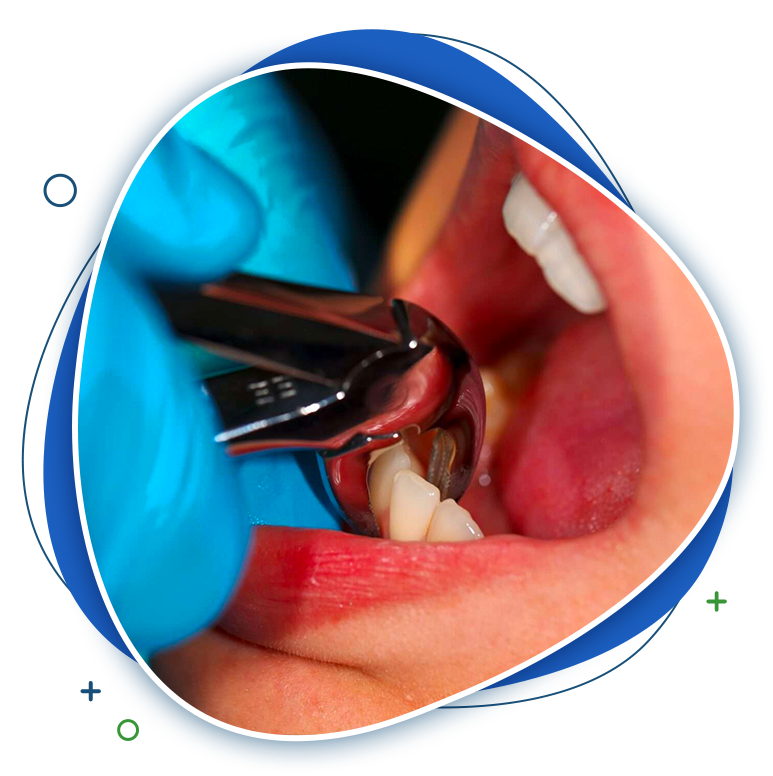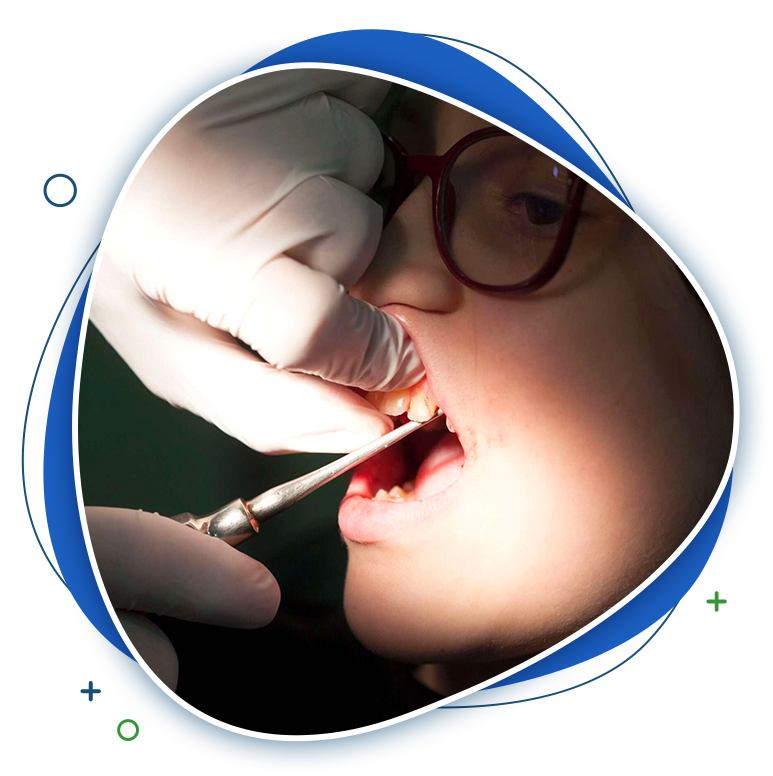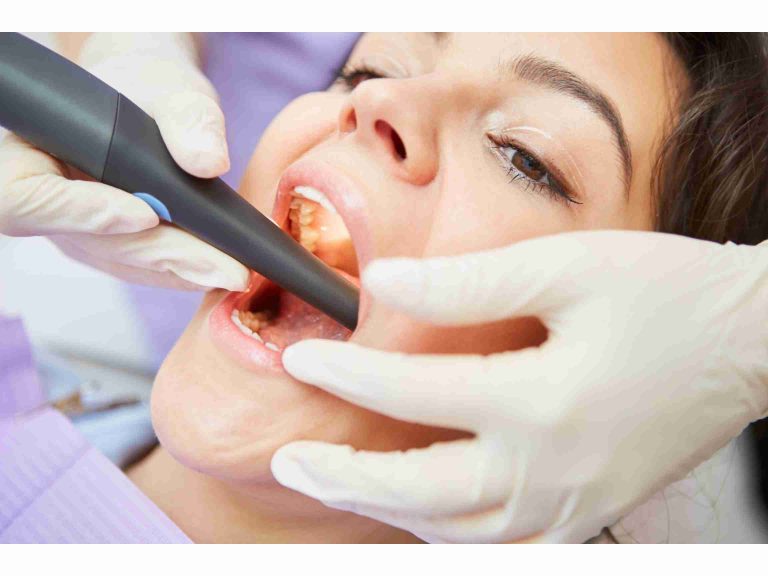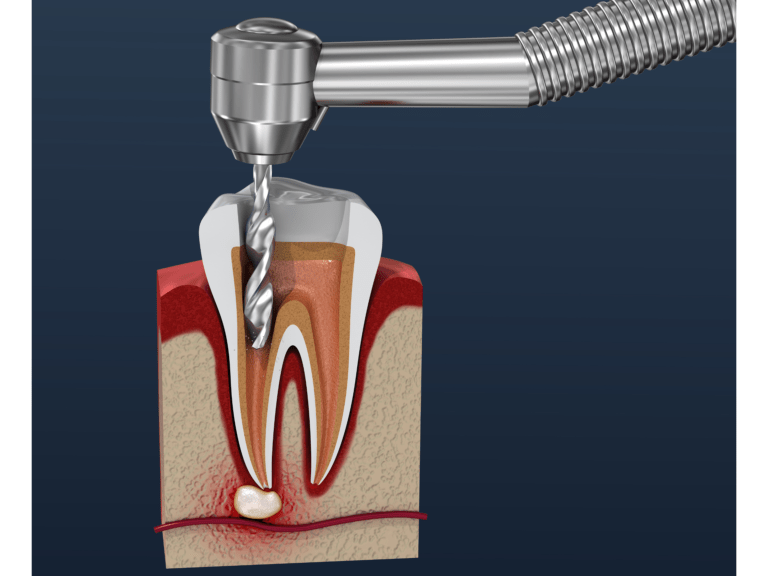Tooth Extractions near Glossodia
Tooth extraction is a dental procedure that involves entirely removing your tooth from its socket. In dentistry, it is typically only used as a last option because keeping the natural tooth in the mouth is ideal. The patient’s condition, age, tooth location, and root development problem will determine the procedure. If you require emergency wisdom tooth removal or specific tooth extraction services, Good Smile offers a very comfortable and stress-free tooth extraction procedure near Glossodia. Our dentist will evaluate the need for an extraction and go over all of the details of what to expect before and after the treatment or discuss with you the possibilities for replacing the lost tooth accordingly, like implants, fixed bridges, dentures, and so on.


When would you require tooth extractions?
The following are some of the reasons why tooth extraction may be required:
- Tooth decay or damage that is severe
- Gum disease is a condition that affects the gums
- To improve one’s appearance (e.g., through orthodontic treatment)
- Tooth cracks on a large scale
- Positioning or functionality issues
A consultation for tooth extraction near Glossodia at our Windsor clinic will help us determine how severe your condition is and the right treatment measure to address it.
Procedure for extraction
A local anesthetic – We can give you a local anesthetic before starting the operation to keep you comfortable and pain-free.
Tooth extraction – After numbing the site, the tooth is gently extracted. In some cases, a small incision may be necessary to remove the tooth completely. The cut is then stitched up and closed.
Clean up – Once the tooth is extracted, we see to it that the gum socket is clean before making you bite down on some gauze to slow down and stop the bleeding.
After-care following a tooth extraction at our clinic near Glossodia.


To make sure the treated site is healing well, our dentist will recommend certain aftercare tips for you to follow. Here’s what you may need to do –
- Follow the prescription for pain medication prescribed by our dentist. This will keep the pain in check once the anesthesia wears down.
- Avoid rinsing your mouth for the next 24 hours after treatment
- Make sure you don’t consume any hot foods and beverages
- Avoid consuming alcohol or smoking for the next couple of days after treatment
- If there is persistent bleeding, make sure you rinse your mouth with salt water (warm) 24 hours after your treatment and repeat it 3 to 4 times a day until the bleeding stops
Do not hesitate to reach out to us at Windsor Riverview Mall in case of any queries. We will address your concerns and make your treatment and recovery a breeze.
Areas we serve: McGraths Hill, Glossodia, Mulgrave, Box Hill, Riverstone, Bligh Park, Wilberforce, Pitt Town & Richmond.
Root Canal
A root canal treatment is used to repair and save teeth that have had their pulp exposed because of infection or trauma. Root canal treatment first involves extracting the infected nerve and pulp, then cleaning and sealing the root. A crown later supports the tooth.
At Good Smile, we exclusively treat our patients with the most recent technology to properly clean and prepare all canals before filling them.
The procedure of root canal:
- General Anesthesia: To begin, we will give you local anesthesia to numb the infected tooth and surrounding gums (Nitrous oxide, oral sedatives, and intravenous (IV) sedation are also used in dentistry to help you relax).
- Implantation of a dental dam: Your doctor will put a small rubber dam over the area before beginning root canal treatment. During the procedure, this isolates the tooth and keeps it dry.
- A hole for access: The pulp is accessed through a small tooth crown opening.
- Removal of the pulp: The nerves, blood vessels, and tissues inside the tooth are removed.
- Using tiny dental instruments.
- Canal sculpting: The pulp chamber and root canals are cleaned, disinfected, and shaped.
- After removing the pulp.
- Filling the canals: We will fill the empty canals with gutta-percha, a flexible, rubbery.
- Dental material.
- The tooth is sealed: Your doctor will fill the tooth with a dental filling to prevent.
- Bacteria from re-entering.
- Putting the finishing touches on the restoration: A dental crown will be required to protect the treated tooth and restore your bite. Crowns are made to order and typically take two to three weeks to complete. When your crown is finished, the temporary crown is removed, and your doctor will install a permanent crown.



